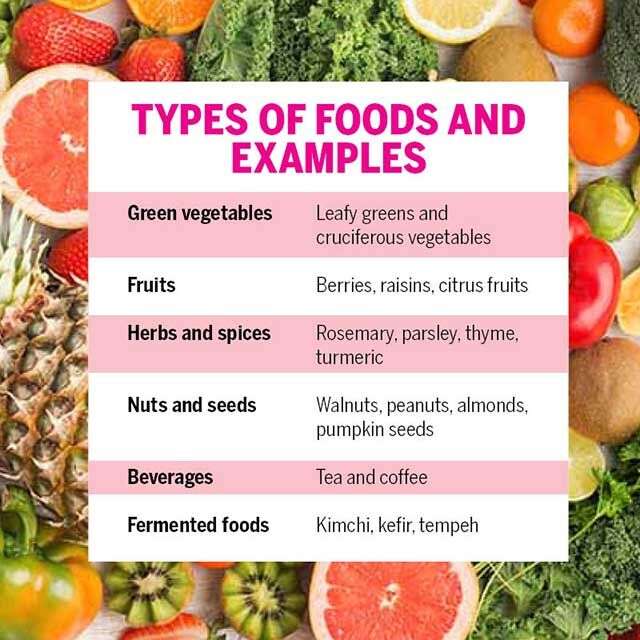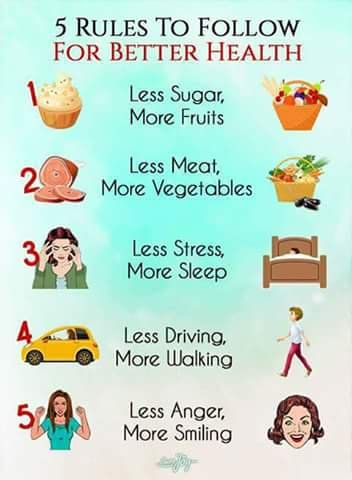
Diabetes can be prevented with a high-fiber diet and 3 to 5 servings per day of whole grains. Karen Ansel is a registered nutritionist and dietitian in Syosset, New York. She says that those who regularly drink coffee are 54 percent less likely than those who do not. This condition can also been prevented by eating foods high in fiber, vitamin B, and lutein.
Cruciferous veggies are rich in fiber and vitamins. They may help prevent diabetes. A chemical found in spinach, Sulforaphane is linked to a lower risk of developing heart disease and inflammation. Although salmon is high in omega-3 fatty acids, you can also eat fish that contain this nutrient. Also, try trout and albacore tuna. If you want to avoid extra calories, try cooking fish in the oven instead of frying it. According to the American Diabetes Association, fish should be eaten at least twice per week.

A diet rich in fruits and vegetables is beneficial to your health. High intake of vegetables and fruits is good for your overall health. Consume a variety of fruits and vegetables, especially berries and citrus fruits. Red meat and dairy products should be limited if you have diabetes. Your best option is to eat more fruits, vegetables and dairy products. This is a more difficult task in the early stages but will help you to lower your risk of developing type 2.
Many benefits are available to people with diabetes from yogurt. Yogurt is high in calcium and high quality protein. Plus, the only sugar in yogurt is natural. It also contains probiotics which aid in maintaining a healthy balance of bacteria within the digestive tract. Even people with lactose intolerance can consume yogurt, as long as they purchase Greek varieties. This yogurt has a lower amount of lactose than regular yogurt. However, it can still be eaten by people with lactose intolerance.
Legumes are another type of food that helps prevent diabetes. They are rich in fiber and protein, and can stabilize blood sugar levels. They also help reduce your risk of developing type 2 diabetes. You don't even need to snack because legumes are high in protein. The legumes in your diet are also high in antioxidants and can fight inflammation, which are two of the major causes of type 2 diabetes.

Oatmeal is high in fiber, which can help reduce hunger before lunch. Research has shown that those who consume four to five cups of oatmeal per day are less likely to develop type 2 diabetes than those who consume less fiber. Fiber also helps regulate blood sugar levels which can help lower the risk of developing diabetes. For those with diabetes history, make sure you eat plenty.
FAQ
Which workout is best to build muscle?
You need to perform two types of exercises when building muscle mass. These are isolation exercises and compound moves. While isolating exercises target specific muscles, compound movements are designed to focus on multiple muscle groups at once.
It is important to do exercises that work all of your major muscles groups. This ensures you're always pushing yourself during your workouts.
MyFitnessPal is an app that allows you to track your activities. You can log everything, from calories burned to weight lifting. You can also create customized meal plans based upon your goals.
Do weightlifting burn fat faster?
You can lose more fat by weight lifting, but only when you do it in conjunction with cardio.
It is important to do weightlifting right after cardio exercise in order to reap the full benefits.
Weightlifting is a good way to lose weight. It increases your heart beat and oxygen consumption.
But if you do not combine it with cardio, you will not see any significant changes in your body composition.
Is cardio exercise good for your health or bad?
Cardiovascular exercise is a great way to improve your cardiovascular health. It improves blood circulation, strengthens your heart muscle, increases stamina, helps you lose weight, and gives you energy.
Cardiovascular exercise includes running, biking, hiking, swimming, tennis, basketball, soccer, volleyball, football, etc.
Cardio exercises should not be done at high intensity. This could result in injury.
The cardiovascular exercise should only be performed if you feel good.
It is important not to push yourself beyond your limits. If you do, you might injure your self.
It is important to warm up before you begin any cardiovascular exercise. Then, gradually build up to higher intensity levels.
Listen to your body. If you feel pain, stop doing cardio exercise immediately.
It is also advisable to rest after a cardiovascular workout. This allows your muscles time to recover.
Cardiovascular exercise is an important part of losing weight.
This is the best way to lose weight and belly fat.
What foods should I avoid when trying lose weight?
Avoid trans fats. Trans fats can increase LDL (the negative) cholesterol levels and decrease HDL (the positive) cholesterol.
Trans fats may be found in deep-fried, fast food, packaged bake goods, snack cakes, or other processed food.
These unhealthy fats also contribute to inflammation, leading ultimately to heart disease or diabetes.
Avoid foods that are sweetened with artificial sweeteners. Artificial sweeteners increase the risk of getting cancer.
These chemicals are found everywhere, from soft drinks to chewing candy to candy bars to chewing gum. They can also be found in other foods like meat, poultry, and eggs.
Artificial sweeteners include saccharin.
The American Heart Association suggests that you avoid these chemicals as they can cause DNA damage in your cells.
How many times per week do I need to exercise?
It all depends on your time and the type of exercise that you enjoy. It's a good idea to do moderate-intensity aerobic exercises 3 - 5 times per week. It is important to not overdo it. Consistent exercise is essential to achieving maximum benefit from your workouts.
What exercises are the best?
It really depends on the type of fitness goal you have. Some people focus on endurance activities like running, cycling, and swimming. Others like lifting weights or using resistance band. There are many exercise programs on the market today. You can choose the one that best suits you.
Is it true, that too much protein can cause kidney stones?
Protein helps maintain healthy bone and tissue. Over-consuming protein can result in calcium being excreted through the kidneys. This can lead kidney stones.
Not everyone who eats more than 2g of protein per kilogram (2.2 lbs) of bodyweight will get kidney stones. You don't have to eat a lot of protein to get kidney stones.
Watching your sodium intake can help prevent kidney stones. Sodium is important for maintaining the body's water balance. Too much sodium can lead to kidney stones.
You may also want to reduce your protein intake in the event of kidney stones. About half of adults' daily caloric intake is made up of protein. Reduce your intake of protein and you will likely lose weight.
If you do decide to eat more protein, don't go overboard. Limit your intake to 20% of your total daily protein intake.
Statistics
- According to the American Academy of Dermatology (AAD), men over 50 are at a heightened risk of developing it. (healthline.com)
- An estimated calorie range for moderately active adult males falls between 2,200 to 2,800 calories per day, depending on age. (eatright.org)
- The PRS enabled risk stratification for overall prostate cancer and lethal disease with a four-fold difference between men in the highest and lowest quartiles (HR, 4.32; 95% confidence interval [CI], 3.16-5.89). (pubmed.ncbi.nlm.nih.gov)
- Are You One of the 20% of Guys (mh.co.za)
- By John Thompson Take a whopping 38% off a set of PowerBlock Pros. (menshealth.com)
External Links
How To
What nutrients does a man need daily?
Men require daily nutrition for healthy growth and development. Your body needs vitamins, minerals and nutrients as well as carbohydrates, proteins, fats, carbohydrate, fiber, and other essential components.
Also, the male body requires certain nutrients at specific times during the day. For example, when you sleep, your body uses energy from food to make hormones, antibodies, and enzymes. When you awake, protein is used by your body to build muscles or repair damaged tissue.
Your body stores extra energy as glycogen and breaks down fat at night. During this time, your body needs fewer calories but still needs sufficient nutrients. You may have an occasional snack during the evening hours if you feel hungry.
You need to eat enough carbs and protein when you exercise. You may feel sore muscles if you exercise hard.
To avoid this, you need to eat carbs and proteins within two hours of training. Your body will breakdown stored glycogen and provide you with glucose for energy.
You must also eat protein right after you finish your workouts. This prevents muscle tissue being destroyed while you're sleeping.
Your body can produce lactic acid during intense physical activity. It is a form of lactic acid that builds up in the bloodstream. This causes fatigue. To avoid this, you should eat foods rich in carbohydrates, such as fruits and vegetables.
Carbohydrates offer your body the energy it needs for recovery from exercise.
A healthy diet should include lean meats such as fish, eggs and milk, cheese, yogurts, beans, seeds, nuts, and beans.
All of these foods contain high quality protein. Protein is important for muscle growth and repair. It provides amino acids that your body needs in order to produce sexhormones and testosterone.
You also need enough dietary fats to maintain good skin, hair, nails, and joints. Healthy men should consume between 20% to 35% of their daily caloric intake from fat.
Fat helps protect your heart health and prevents cancer. Your brain also functions properly thanks to fat.
Vegetable oils, such as olive oil, sunflower oil or corn oil, soybean oil and peanut oil, can supply most of the fats you require.
These oils contain high levels of monounsaturated fat acids (MUFAs). MUFAs help lower cholesterol and reduce inflammation. They also protect your cells from damage caused by free radicals.
Saturated Fats (SFAs), which are mostly found in animal products like meat, butter, and dairy products, include LDL ("bad") cholesterol. SFAs raise LDL ("bad") cholesterol and increase triglycerides. They are also good for weight loss and belly fat.
Polyunsaturated oils (PUFAs), are found in plant-based foods like nuts, seeds and vegetable oils. PUFAs help improve cardiovascular function, and lower inflammation. They also reduce blood sugar, cholesterol, and other inflammatory factors.
Erectile dysfunction is common in men with low HDL ("good") cholesterol. The consumption of saturated fats raises bad cholesterol which in turn lowers good cholesterol.
Men who eat a lot of red meat or pork develop prostate problems because they contain large amounts of nitrates. High temperatures can cause nitrates to become nitrosamines. These compounds can cause cancer.
Many processed meats are high in nitrites, and other dangerous chemicals. Avoid them completely.
The American Heart Association recommends that you limit your intake of red meat to 2 per week. Instead, choose poultry or fish, beans, tofu and whole grain bread.